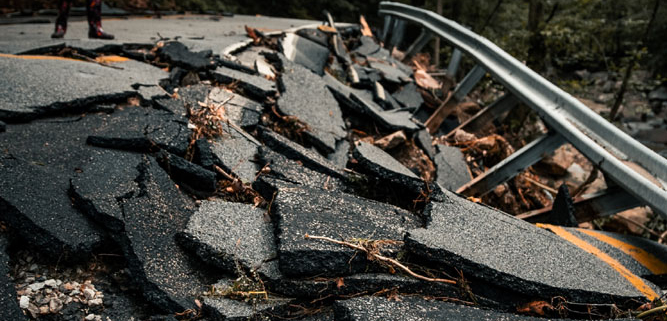7 Questions to Ask in the Aftermath of a Disaster
After a disaster strikes, the aftermath can be a time of chaos and confusion. To help you navigate the challenges that follow, here are seven questions to consider.
-
Are You and Your Loved Ones Safe?
The first and most critical concern is the safety of yourself and your family. Ensure that everyone is safe and accounted for. This may involve communication via phone or internet, designated meeting points, or emergency shelter check ins.
-
Have You Checked Your Supplies?
Assess your supplies. This includes food, water, and necessary medical items. Natural disasters can disrupt supply chains, making it important to have enough provisions to sustain your household for at least 72 hours. Though the initial emergency may be over, you may need to stay home for an extra day or two per the authorities suggestion.
-
Is Your Home Safe to Reenter?
Before returning to your home or building, conduct a thorough inspection to assess its safety. Depending on the natural disaster, look for visible structural damage, cracks, or any signs of instability. If there are concerns, do not enter, and instead, contact professionals for a comprehensive assessment. Safety is super important, and so is the legal protocol.
-
Are Important Documents Secure?
Confirm the condition and accessibility of your documents. These may include identification, insurance policies, medical records, and financial information. Store digital copies in a secure, cloud-based location and protect physical copies in waterproof containers or at a secondary safe location to prevent loss or damage.
-
Have You Sought Assistance?
If you require assistance, do not hesitate to seek help from local authorities, relief organizations, or neighbors. After a disaster, communities often come together to support one another. Assistance may include food, water, shelter, or medical aid, and it’s essential to reach out when needed.
-
How Are You Coping Emotionally?
Acknowledge that the aftermath of a disaster can be emotionally challenging. Witnessing destruction, experiencing loss, or displacement can be traumatic. Pay attention to your mental and emotional well-being and seek support from mental health professionals, support groups, or friends and family when necessary. Mental health is a vital aspect of recovery.
-
What Are Your Next Steps?
Consider both short-term and long-term plans. In the short term, if applicable, contact your insurance provider to start the claims process and document damage for reference. Engage in immediate recovery efforts, such as cleaning up debris and securing your property. For the long term, plan for rebuilding, strengthening your property against future disasters, and preparing for potential emergencies.
Conclusion
In the aftermath of a disaster, these seven essential questions can provide you guidance as you work towards a safe and secure recovery. Remember that while the challenges may be great, careful planning and seeking support can help you rebuild and move forward with resilience.
Briden Solutions has got your back! Do not hesitate to call our team if you have questions – 1-888-817-5550




